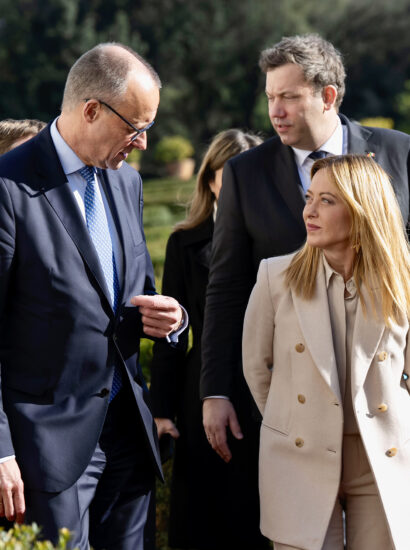In recent months, Chinese espionage has spread throughout Western Europe. The growing alarm that Western intelligence agencies are raising about Chinese state-sponsored hacking activity has resulted in heightened tensions over espionage between Beijing and Western powers. Naturally, Beijing refuted all of these claims.
Significant trade disputes overshadowed Chinese President Xi Jinping’s trip to Europe, which included stops in France, Hungary, and Serbia, adding another layer of tension to the already developing situation. It is also evident that, ahead of the European elections, China (as well as Russia) intensified their cyber and other forms of espionage.
Russian influence tactics currently appear to be more sophisticated. Their goal is to fracture democratic societies and erode confidence in democratic procedures. However, in order to exert pressure and change public opinion abroad, Beijing’s leadership prefers to project a strongly positive image of its own authoritarian state. The ultimate goal is simple: by any means China wants to became the first economic power of the world.
The Chinese Ministry of State Security (MSS), which integrates intelligence collection, security services, and the secret police, oversees China’s intelligence operations. It’s been compared to a fusion of the CIA and the FBI.
According to experts, Chinese spies prioritize three tasks:
- gathering intelligence on sensitive industries;
- monitoring diaspora populations, especially minority groups like Tibetans, Uyghurs, and Hongkongers;
- shaping political and economic trends to suit China’s interests.
Target: The European Parliament
Investigative publication The Insider claimed at the beginning of this year that a Latvian legislator, Tatjana Zdanoka had years of experience working with Russian intelligence officers.
Zdanoka participated in the Crimean “referendum” as an “observer” and met Syrian President Bashar al-Assad in person when he was already under EU sanctions and Moscow was supporting the dictator. She was among the scores of MEPs who did not vote in favor of the EP declaration denouncing Russian aggression in February 2022.
On February 21, the European Parliament sent an internal note outlining the instances in which it discovered spyware on the devices of two MEPs and a member of its defense subcommittee staff.
The subcommittee’s chair, French MEP Nathalie Loiseau, was the target of Israeli-made spyware Pegasus, and Bulgarian lawmaker Elena Yoncheva claimed to have found spyware residue on her phone.
On May 6, the European Parliament notified dozens of job seekers about a security breach in its online hiring platform.
Intensified Spying Activity in Germany
German authorities made headlines in April when they detained four people in two different cases. Three of them for allegedly sending military technology to China and one individual with a German-Chinese background was an aide from the European Parliament, arrested on serious espionage charges for allegedly giving Chinese intelligence sensitive information.
The latter, widely reported scandal began on April 23 when German public prosecutors ordered the arrest of Jian G., an assistant to far-right Alternative for Germany (AfD) MEP Maximilian Krah.
The employee was accused of working as a spy for the Chinese secret services. Krah headed his party’s EU Parliament delegation and was a frequent supporter of improved ties with China and Russia. Krah has adopted a China-friendly stance, describing reports of human rights violations, such as concentration camps for Uyghurs in Xinjiang, as “anti-China propaganda.”
Czech and German media have named Krah as one of two candidates from the AfD suspected of receiving Russian funds to spread pro-Russian propaganda as well.

Maximilian Krah after his resignation as AfD’ lead candidate (Source: Twitter.com/Welt)
Ultimately, the scandal-plagued front-runner withdrew from AfD’s campaign. He resigned from the party’s leadership following the pressure of his series of disgrace.
Prosecutors claimed that Jian G., who resided in Dresden, Germany, as well as Brussels, spied on Chinese opposition leaders there. If the accusations were validated, according to Interior Minister Nancy Faeser, Jian G’s acts would be “an attack on European democracy from within.” She claimed that because of Chinese espionage and Russian hybrid threats, Germany had drastically stepped up counterespionage.
Within two weeks, the AfD was found to have Russian spies in its ranks. This could be interpreted as a statement that sovereignty against the European interest is in the interest of third countries.
Put more simply, Moscow and Beijing are paying for Euroscepticism wherever they can, and the far-right parties are the right medium to carry out this operation. Although, not only the extreme-right, but the ultra-left are also happy to adopt Chinese narratives.
The other scandal was, in some ways, even more worrying. This is partly because it showed that German self-defense reflexes are still weak. Three people were arrested with the suspicion of supplying military technology information to a Chinese intelligence service. Two German companies under Chinese influence have long had contracts with leading German university research centers to buy military-industrial secrets.
The three suspects through their company entered a cooperation agreement with the university, which included preparing a study for a Chinese partner on machine parts that are important for the operation of powerful ship engines, including those used on combat ships, according to prosecutors.
They have acquired everything from engine designs for a warship to specifications for dual-use products that would otherwise be subject to export restrictions. They have stolen European intellectual property.
In connection of this case Nancy Faeser said the government was monitoring what she called a significant threat posed by Chinese espionage in business, industry and science.
“We look very closely at these risks and threats and have clearly warned and raised awareness about them so that protective measures are increased everywhere,” she said in a statement. In this case, the issue of German innovative technologies that can be used for military purposes was “particularly sensitive,” she added.
Germany’s domestic intelligence service, known by its German acronym, BfV, warned that the level of espionage activities have nonetheless reached heights comparable to the Cold War due to the ongoing competition between China and Russia. The head of the agency, Thomas Haldenwang, told the members of the German Parliament, “Russia is the storm, China is the climate change.”
Serious Infiltrations in the British Defence System
Just one day prior to the Krah-scandal, two men – one of whom was employed as a parliamentary researcher for a prominent member of the British Conservative Party – were accused of spying for China in Britain. The two individuals were charged with violating Britain’s Official Secrets Act by giving China information. Beijing’s embassy in London embassy declared the accusation to be “wholly fabricated.” Interestingly the researcher, named Christopher C. had ties to the China Research Group – a group that frequently holds hard (!) opinions about China.
In early May, just when Xi-Jinping landed in Serbia for the second part of his mini-tour of Europe, Downing Street declared that a “malign actor” had breached British military payroll records.
The British Ministry of Defence (MoD) announced on May 7 that a purportedly Chinese cyberattack had exposed the personal data of thousands of soldiers. The devastating hack exploited a weakness in a Department of Defense payroll system managed by contractors, which holds the names, bank account information, and, in some cases, addresses of 270 000 active and retired military personnel.

British Ministry of Defence (MoD) building in Whitehall, London (Source: Wikipedia)
Former Far-right Politician Exposed in Belgium
Spying scandals are not limited to Germany or the United Kingdom. Several national agencies have warned of the threat that exists throughout the continent.
Following claims made after a joint investigation made by The Financial Times, Der Spiegel, and Le Monde that far-right politician Frank Creyelman had been used as a Chinese intelligence asset for several years, the Belgian authorities launched a criminal investigation into him in January. Subsequently Creyelman was banished by his party due to the accusations.
It was revealed during the investigation that, an agent of the Chinese Ministry of State Security – a man named Daniel Woo – who put pressure on the former Vlaams Belang politician to sway discussions about Chinese issues in Europe. Numerous text messages that they exchanged were eventually revealed during an investigation.
“Our goal is to divide US-EU relations,” Woo said in a message to Creyelman.
It was also revealed that the two started their cooperation in 2019, and the Chinese paid for Creyelman’s services in cryptocurrency.
The far-right politician’s objectives included discrediting Uyghur rights activists and critics, mocking pro-freedom demonstrations in Hong Kong, and supporting and upholding China’s COVID-19 stance—all while providing Creyelman with a complimentary trip to a Chinese beach resort. His brother, Steven Creyelman, has also been a member of parliament since 2019 and has been keen to convey the messages and moderate Belgium’s stance.
Additionally, Frank Creylman, who is well-known for his support of Vladimir Putin, has received multiple invitations to Moscow. In 2014, Creyelman even attended the contentious referendum that the Kremlin arranged to approve the annexation of the Crimean peninsula of Ukraine.
What can the EU do?
The European Commission recently proposed a new directive to combat the issue, given the danger foreign interference could pose for European democracy. It was the first time that the bloc’s executive arm, the European Commission used a new anti-foreign subsidy law to order a raid on a Chinese company.
“We have to constantly bear in mind Putin will use disinformation and foreign interference as a weapon to divide Europe. This is also why we have proposed the Defence of Democracy directive to shed more light on hidden foreign interference,” Transparency Commissioner Vera Jourova said earlier.
Targeted information campaigns that expose disinformation and manipulation, as well as cooperation with fact-checking organizations, in conjunction with European legislation such as the Digital Services Act, can contribute to the fight against disinformation and foreign influence.
The same applies to coordinated international cooperation with democratic partners such as Taiwan, which has long been confronted with the problem of authoritarian influence and attempted infiltration.
European Parliamentarians themselves are all too aware of how all this looks to voters. “This Parliament is under a lot of urgency to clarify what has happened and then to take the consequences,” Terry Reintke, one of the two lead candidates for the Greens, told Deutsche Welle in Strasbourg back in April.
The fact that the Chinese have been undercover for so many years at such a high level, trying to influence the European Parliament’s China policy, shows that they do not leave things to chance and a few international meetings.
It is difficult to exert political influence, and let us be sure: it also happens at the level of national parliaments. But they rarely fail so spectacularly. But it is a warning sign to all those national services that still take national sovereignty seriously and understand it correctly that it is time to weed out the deep-pocketed Chinese spies.








[…] have also published a compilation on the presence of Russian and Chinese services in Western European parties, mainly […]